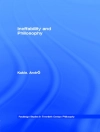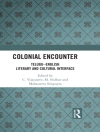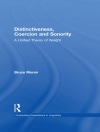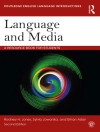This rich volume deals comprehensively with cross-linguistic variation in the morphosyntax of ditransitive constructions: constructions formed with verbs (like give) that take Agent, Theme and Recipient arguments. For the first time, a broadly cross-linguistic perspective is adopted. The present volume, consisting of an overview article and twenty-odd in-depth studies of ditransitive constructions in individual languages from different continents, arose from the conference on ditransitive constructions held at the Max Planck Institute for Evolutionary Anthropology (Leipzig) in 2007. It opens with the editors’ survey article providing an overview of cross-linguistic variation in ditransitive constructions, followed by the questionnaire on ditransitive constructions, compiled by the editors in order to elicit various properties of these patterns. The editors’ overview discusses formal properties of ditransitive constructions as well as behavioral (or syntactic) and lexical properties (i.e., the extension of ditransitive constructions across different verb classes).
The volume includes 23 contributions describing properties of ditransitive constructions in languages from all over the world, written by leading experts. Care has been taken that the contributions to the volume will be representative of structural, geographic and genealogical diversity in the domain of ditransitive constructions. Thus the present volume provides a unique source of information on typological diversity of ditransitive constructions. It is expected that it will be of central interest to all scholars and advanced students of linguistics, especially to those working in the field of language typology and comparative syntax.
Sobre el autor
Andrej Malchukov, Max Planck Institute for Evolutionary Anthropology, Leipzig, Germany and Institute of Linguistic Studies, St. Petersburg, Russia; Martin Haspelmath, Max Planck Institute for Evolutionary Anthropology, Leipzig, Germany; Bernard Comrie, Max Planck Institute for Evolutionary Anthropology, Leipzig, Germany and University of California Santa Barbara, USA.












